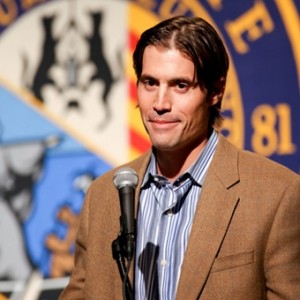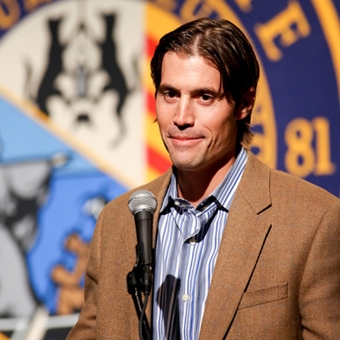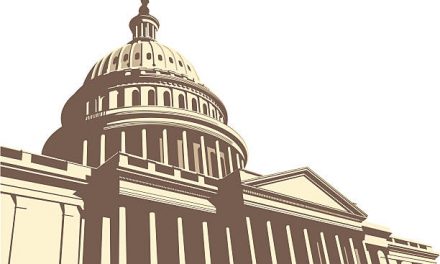 Like so many others, I was stunned and saddened by the news of James Foley, Marquette University ‘94, who was apparently beheaded by ISIS insurgents as retribution for US airstrikes in Iraq against the group. I did not know James Foley personally, but as a Catholic educator, I feel like I know a lot of students like him: smart, idealistic, committed, and brave. In his story, I see the stories of so many of my students. The gravity of his life and untimely death offers occasion to think about the values that make uncommon virtue so common among students like James Foley. In short, what is it about Catholic education that prepares students to pay the cost of discipleship?
Like so many others, I was stunned and saddened by the news of James Foley, Marquette University ‘94, who was apparently beheaded by ISIS insurgents as retribution for US airstrikes in Iraq against the group. I did not know James Foley personally, but as a Catholic educator, I feel like I know a lot of students like him: smart, idealistic, committed, and brave. In his story, I see the stories of so many of my students. The gravity of his life and untimely death offers occasion to think about the values that make uncommon virtue so common among students like James Foley. In short, what is it about Catholic education that prepares students to pay the cost of discipleship?
Upon the news of Foley’s death, Marquette Magazine reposted a 2011 piece, “Phone call home,” where Foley reflects on the role his Marquette education played in his experience of political imprisonment in Libya. In this letter, Foley describes his transformation from a “sheltered kid” to someone who wanted to “give [his] heart for others.” In his narrative, he portrays Marquette as a good friend, “The kind who challenges you to do more and be better and ultimately shapes who you become.” This friendship, Foley explains, helped him become the kind of journalist—and person—who could face an experience that many try to avoid but that Christian discipleship promises: the experience of suffering for the Gospel.
Foley’s description of his kidnapping in Libya gestures to profound doubt that threatened to consume him and his colleagues during this ordeal:
“Myself and two colleagues had been captured and were being held in a military detention center in Tripoli. Each day brought increasing worry that our moms would begin to panic. My colleague, Clare, was supposed to call her mom on her birthday, which was the day after we were captured. I had still not fully admitted to myself that my mom knew what had happened. But I kept telling Clare my mom had a strong faith.”
Thoughts of his mother’s faith fueled him, even as spiritual despair and bodily harm threatened Foley and his companions. When he was finally able to contact his mother, she reminded him that the Marquette community was praying for him. At this moment, he realized that perhaps it was the power of prayer in community that was sustaining him through this trial:
“I replayed that call hundreds of times in my head — my mother’s voice, the names of my friends, her knowledge of our situation, her absolute belief in the power of prayer. She told me my friends had gathered to do anything they could to help. I knew I wasn’t alone.”
The power of community and relationship sustained Foley during this time, giving him freedom and peace when both seemed impossible:
“If nothing else, prayer was the glue that enabled my freedom, an inner freedom first and later the miracle of being released during a war in which the regime had no real incentive to free us. It didn’t make sense, but faith did.”
This sustaining faith, Foley recognized, is the stuff of ultimate freedom.
Two things stand out to me in Foley’s story. First, I am stunned by his fortitude in the face of grave danger. So many students and alums of Catholic schools evidence this virtue. Welles Crowther, a Boston College alumnus who saved several lives at the expense of his own on September 11, 2001, comes to mind as another outstanding example of inexplicable courage in the service of others. James Foley’s journalistic vocation—an unyielding summons that directed his actions—appears to have strengthened him during these conflicts.
Second, James Foley’s life and testimony exemplifies a profound sense of inextricable relationship with God and other people. His sense of connectedness to the suffering of other humans sent him out to share their stories with the world. His sense of connectedness to God helped him endure adversity. Even in those moments of intense fear and uncertainty, Foley remembered the most vital lesson that Catholic education can offer: that he was not alone. Let us pray that Foley remembered this same lesson in the final moments of his life, where he suffered the ultimate cost of discipleship.
Updated 25 August 2014




Trackbacks/Pingbacks